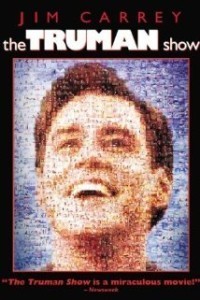Three Lessons from the Screenwriting Trenches
 Send to Kindle
Send to KindlePhoto Courtesy of IMDb In a previous post I talked about writing my upcoming novel, Tell Me When I’m Dead, to be more like a screenplay in terms of pacing. I laid out the beats I’d like to hit so the reader feels they are watching a movie. This got me thinking about other lessons from screenwriting. I’d like to share just three of those because I think they are applicable.
In a previous post I talked about writing my upcoming novel, Tell Me When I’m Dead, to be more like a screenplay in terms of pacing. I laid out the beats I’d like to hit so the reader feels they are watching a movie. This got me thinking about other lessons from screenwriting. I’d like to share just three of those because I think they are applicable.
1. Keep Backstory to a Minimum
Think about the books you’ve read over the years where you find yourself wading through tons of backstory before you can actually get to “the good part”—the part where something actually happens. I’ve read lots of books in the Kindle Store, and have often found this to be the case. It’s almost as if the author is trying to show me just how much research went into the characters by telling me where they went to middle school, how they got that scar on their cheek and what their childhood imaginary friend’s favorite dessert is.
If you did this in a movie, the audience would walk out. No one has time for that! We want to know:
1. Who we are following.
2. What problem they are trying to solve.
3. What is stopping them from solving it.
If you need to tell the reader important metadata about the character or the setting or the time period, then weave it into the story. Don’t dump it on our plate in one big steaming pile.
Here’s a test. If your book were a relationship and the chapters meetings all the way from the first date to you and the reader getting married at the end, would you tell them everything about you on the first date? Or would you hold back and create a little mystery?
Okay, time’s up. Please put down your pencils.
2. Ask a Question, Then Answer It
This is Screenwriting 101, people. You don’t need to do this on page one, but it should happen pretty close to the beginning to create a hook that will keep the reader interested.
Here are some examples to get you started.
Will Sarah ever get together with the man of her dreams who lives next door?
Will Harry find his wife’s killer before the poison coursing through his veins kills him?
Will Mike and his friends make it out of the haunted house alive?
And now a few real examples. These questions were not officially blessed by the screenwriters, but they were the ones I was asking.
‘The Truman Show’ (1998). Will Truman overcome his fears and escape from Seahaven?
‘Apollo 13’ (1995). Will the astronauts make it back to earth alive?
‘The Godfather’ (1972). Will Michael marry Kay and become an honest lawyer, or take over the family business?
‘Inception’ (2010). Will Cobb ever see his children again?
Here’s the key, though. If you ask the question, you must answer it by the end of the book. Leaving your reader with a vague ending makes people mad—makes them feel like they wasted their time.
You Need a Midpoint
In movies, the midpoint divides the movie into two halves. In the first half, your protagonist is one person on one journey. In the second half they are someone else with a new mission.
A classic example is Ellen Ripley in ‘Alien’ (1979). In the first half, she is not in charge and is trying to work with the rest of the crew to complete her mission. At the midpoint all hell breaks loose, and now Ripley must try to save what’s left of her crew and kill the alien. Not what she signed up for.
And it doesn’t matter what genre you write in. This works for any kind of story. How about ‘Jerry Maguire’ (1996)? In the first half, Jerry is a successful sports agent with a beautiful fiancée, courting a star athlete. At the midpoint he loses out to another agent, dumps the girl and goes out on his own with nothing but a fish and a quirky single mom office worker. Now his new mission is to reinvent himself according to his manifesto and, despite himself, find true love.
There are so many more lessons, but I’ll leave you to ponder these now. Let me know your thoughts in the comments.
Related articles
Must Read Screenwriting Books (cinearchivist.wordpress.com)
Screenplay vs. Novel (ccyager.wordpress.com)
‘The Truman Show’ Was Prophetic (motherboard.vice.com)

 Send to KindleLink to this post!
Send to KindleLink to this post!
Glass Highway
- Steven Ramirez's profile
- 176 followers



